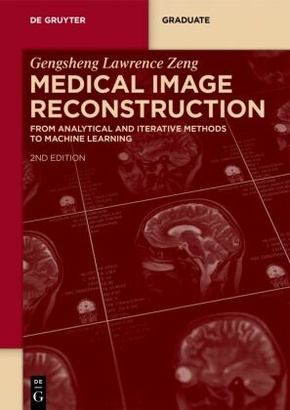Medical Image Reconstruction - From Analytical and Iterative Methods to Machine Learning
| Verlag | De Gruyter |
| Auflage | 2023 |
| Seiten | 273 |
| Format | 17,0 x 1,7 x 24,0 cm |
| Großformatiges Paperback. Klappenbroschur | |
| Gewicht | 552 g |
| Artikeltyp | Englisches Buch |
| Reihe | De Gruyter Textbook |
| ISBN-10 | 3111055035 |
| EAN | 9783111055039 |
| Bestell-Nr | 11105503A |
This textbook introduces the essential concepts of tomography in the field of medical imaging. The medical imaging modalities include x-ray CT (computed tomography), PET (positron emission tomography), SPECT (single photon emission tomography) and MRI. In these modalities, the measurements are not in the image domain and the conversion from the measurements to the images is referred to as the image reconstruction.
The work covers various image reconstruction methods, ranging from the classic analytical inversion methods to the optimization-based iterative image reconstruction methods. As machine learning methods have lately exhibited astonishing potentials in various areas including medical imaging the author devotes one chapter to applications of machine learning in image reconstruction.
Based on college level in mathematics, physics, and engineering the textbook supports students in understanding the concepts. It is an essential reference for graduate stude nts and engineers with electrical engineering and biomedical background due to its didactical structure and the balanced combination of methodologies and applications,
Rezension:
"The care, clarity and depth of most of the chapters contained in that book are admirable. I highly recommend this book as a source for graduates and engineers involved in the field of medical imaging." Optics and Photonics News, https://www.optica-opn.org/home/book_reviews/2023/1123/medical_image_reconstruction_radiation_from_analyt/ (01.12.2023)
For the 1rst edition:
"The structure and exposition are very good. Each chapter has a one-page summary that really does capture all the key points of the chapter. There are good explanations of all the scanning methods and how the physics works and how they are implemented. The book gives several alternate algorithms for processing the data, and gives good explanations of their strengths and weaknesses." MAA Reviews

